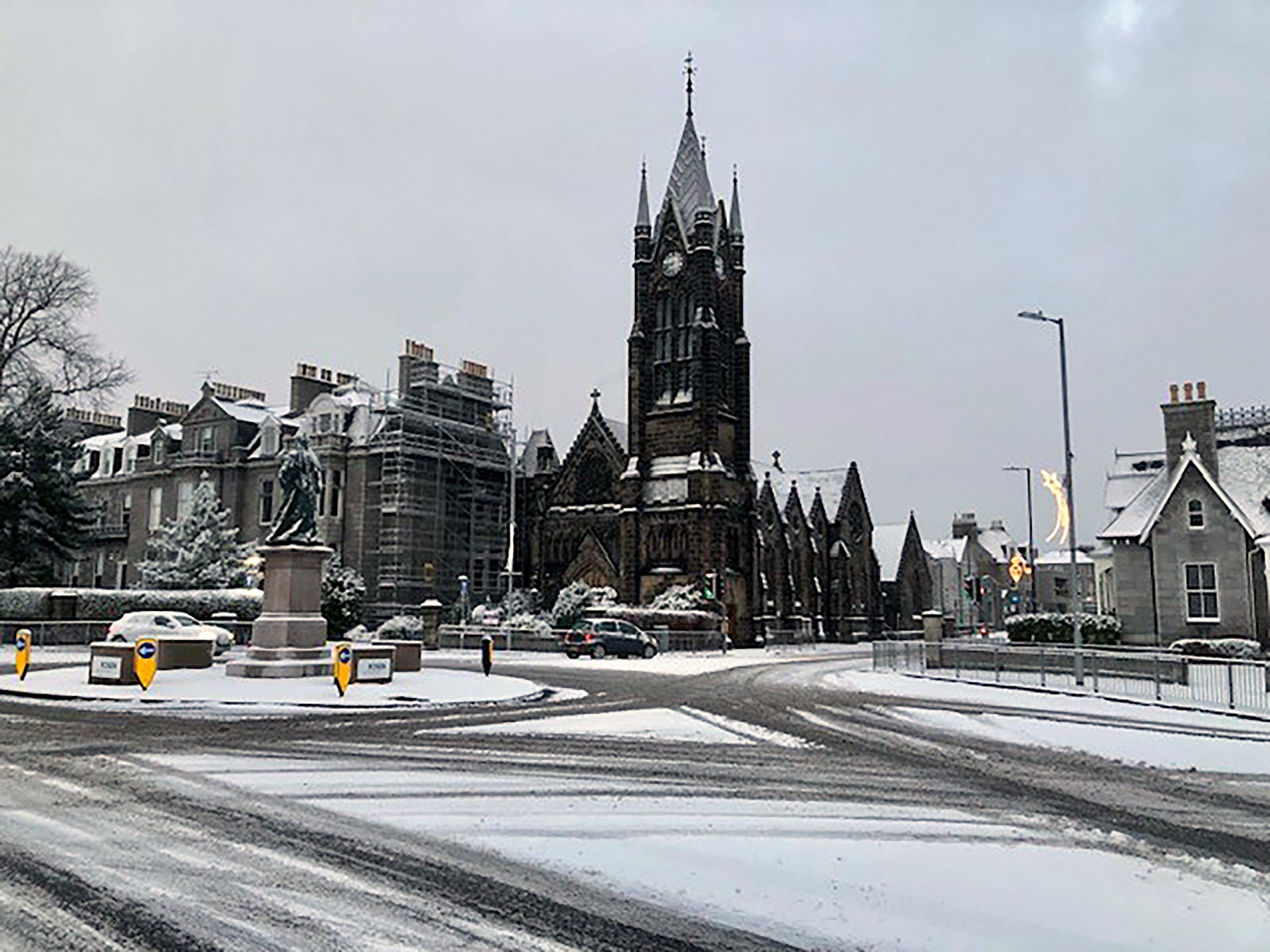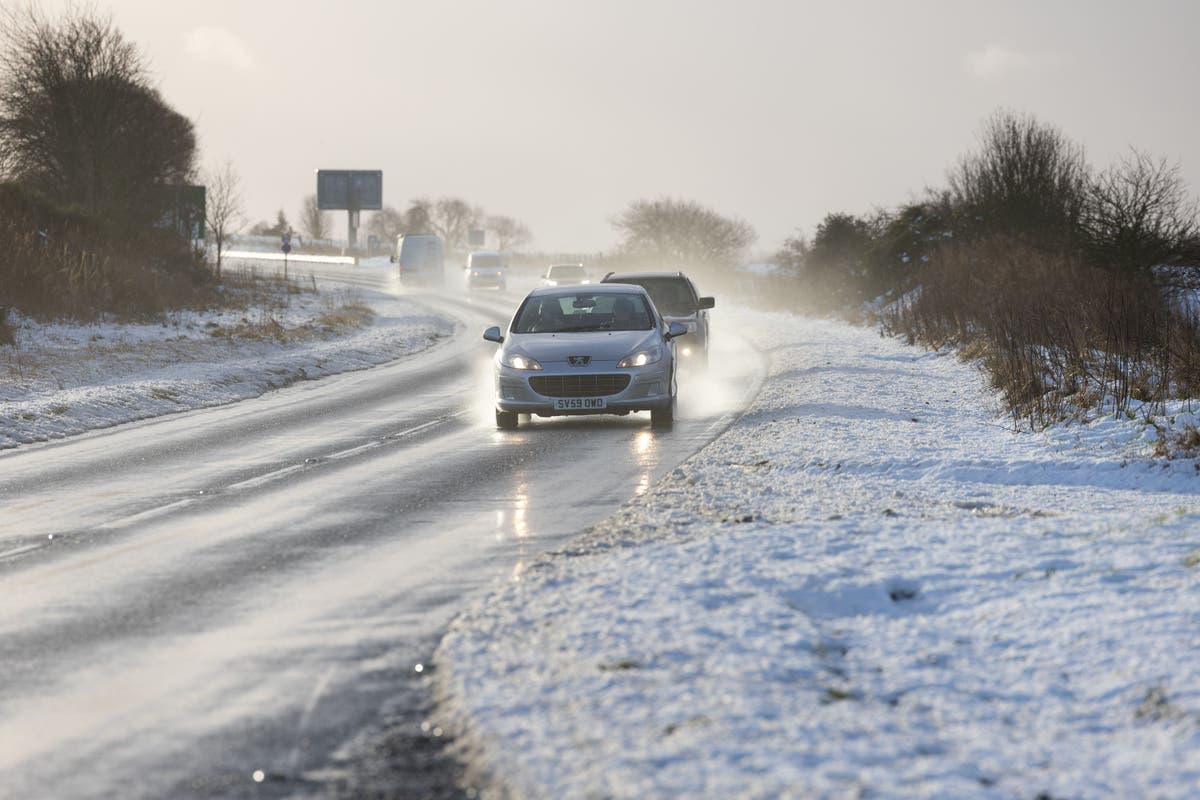Britons wanting to travel home after the New Year have been warned to expect disruption, as snow and icy weather grips the UK and temperatures plunge as low as -8C.
The country will be welcoming 2025 with a cold snap expected to last a week, with the UK Health Security Agency (UKHSA) issuing cold weather health alerts for all of England until 8 January, meaning a rise in deaths is likely.
The Met Office has also issued weather warnings for the next five days, the first of which – for snow and ice, in parts of Scotland, England and Northern Ireland – came into force at 4pm on Thursday, cautioning that travel disruption was likely.
Dan Stroud, a meteorologist at the Met Office, said: “There’ll be widespread frost across the country tonight, from Land’s End to John O’Groats. It will be comfortably below where we should be for this time of year and I would expect temperatures to hit -8C in parts of Scotland.”
Mr Stroud confirmed conditions should become warmer by the end of this weekend before cold weather strikes again early next week.
He said: “The second half of the weekend should be in the high singles or low doubles. But temperatures will dive again next week, particularly on Monday and Tuesday. They should start to improve towards the latter end of the week. But there’s a lot of water to go under the bridge until then.”
Age UK director Caroline Abrahams said the government’s decision to limit the winter fuel allowance to only the poorest pensioners will be put “into sharp relief” by the cold snap. The charity has already been contacted by older people “worrying about what to do when this moment arrived”, she said.
Ms Abrahams said: “We urge older people to do everything they can to stay warm, even if that means risking spending more on their heating than they feel they can afford. The energy companies are under an obligation to help if you are struggling and there may be support available from your local council too.”
For those who intend to travel despite the current wintry weather, both the Met Office and National Rail issued alerts to remind Britons to plan ahead.
Difficult driving conditions should be expected, particularly within areas under a yellow weather warning. Allowing extra time is also advised, with delays, diversions, or hampered conditions likely for road users.

For those using public transport, passengers were advised to check any timetables and services before setting out in case of delays or cancellations due to inclement weather.
As per National Rail, the poor weather will impact trains running across Great Britain, with Northern services, TransPennine Express services, Transport for Wales services and ScotRail services all impacted.
On Thursday, services were halted on two key Scottish railway lines – the Highlands Main Line, and the Far North Line between Inverness and Wick – after heavy rain caused landslips and flooding, while the A939 between Cockbridge and Tomintoul in Aberdeenshire was closed due to snow.
It comes after many in Greater Manchester woke up on New Year’s Day to devastating flooding, with the police declaring a major incident as people were forced to evacuate.
Around 450 people were evacuated on Wednesday evening from a Didsbury hotel while 400 homes were at a lower risk with no widespread evacuation needed, police said.

As of Thursday night, the Environment Agency had issued seven flood warnings in areas where flooding is expected, mainly in Yorkshire and Shropshire, along with 37 lesser flood alerts in areas where flooding is possible.

Over Saturday and Sunday, England and Wales are set to see the brunt of the wintry weather, with the Met Office warning of the potential for power cuts, communities to become cut off, and for some vehicles to be left stranded, with disruption to rail and air travel also possible.
About 5cm of snow is expected widely across the Midlands, Wales and northern England, with as much as 20-30cm over high ground in Wales and/or the Pennines, the forecaster added.
A final warning, in force until midday on Monday, warns of snow across most of Scotland, with similar hazards to those seen over the weekend further south.


